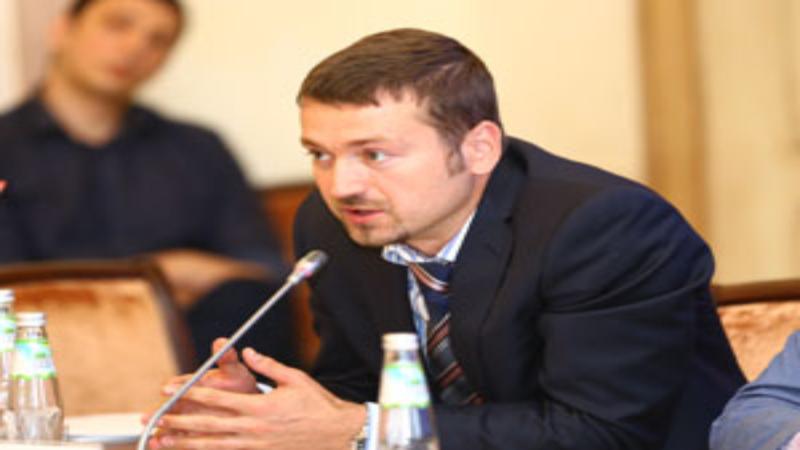Representatives of RICS Russia & CIS in the person of Elena Vago, Irina Komar and Anna Isaeva took part in the preliminary discussion of the bill ‘On State Cadastral Valuation’ No. 1060652-6, conducted by the Russian Federation Civic Chamber on May 31, 2016. The attitude of the RICS Professional Valuation Group was delivered by Mr. Kartsev, Director General of VALRUS. The basics of this attitude are given below:
1) Our members share the view that the current scope and quality of information in the real estate cadaster in any case will not make it possible to solve the most pressing issues in the sphere of cadastral valuation. The extension of cadaster data is a necessity, including their cleaning and clarification. The bill, in fact, does not solve this problem. Consequently, the largest part of concerns and problems that have been detected and reacted by the leadership of the country, will not be solved with the enactment of the bill. We believe that if there is a public need for enactment of the special federal law in the field of state cadastral valuation, it should also solve these very issues and create a mechanism for filling the cadaster with qualitative data on properties.
2) According to the international practice, in those countries where property taxation is based on the cadastral value, the cadastral valuation can be carried out by the public valuers (assessors), as well as private companies.The cadastral valuation by the state or municipal organizations is more common. And the market-value-based cadastral valuation prevails.Meanwhile, in most countries there exists the procedure of disputing the cadastral valuation results by means of establishing the market value in the process of individual valuation. This is done because the mass valuation process does not make it possible to take into account all factors, and also there may be some erroneous basic data. This procedure can be implemented as the pre-court one, but there is always a chance to appeal to judicial resolution of a dispute. In view of the above stated, we positively estimate the bill ‘On State Cadastral Valuation’. Nevertheless, we support the position that the bill should clearly state that the cadastral value is to be identified based on the market value and can never exceed it.
3) One of the most important principles is the stability and continuity of the cadastral valuation system. There has been continuous modification of regulatory structure in this field over the past 10 years, which creates the situation where nor market, nor experts or officials are able to adapt to the modifications. Therefore, should the regulatory system of cadastral valuation be changed, it has to be done with maximum thoughtfulness, providing its continuity and giving reasonable time for introducing the new rules. Based on the above, we believe there should be enough time for public and professional discussions of rules being adopted, development and consideration of government rules and regulations including their approbation.Thus, the period of enactment of a law and transition period should be significantly increased.
4) Whoever performs the assessment - the public or independent assessors - the quality of valuation results is highly dependent on the volume and quality of information on valuation properties and market data on transactions and proposals. The functions of the State Assessors include accumulation of market information for valuation, and we consider it to be a positive novation. The best world practice shows that this information should be made public and available to all market participants, while in the aggregated form it should be provided free of charge. Thus, we consider it necessary to add these provisions to the bill, clearly state the functions of State Accessors and requirements for public disclosure of market information accumulated by State Assessors.
5) Cadastral real estate valuation conducted even by the public valuers is still representing the valuation activity, and it should be carried out by the professionals with expertise in this field. Due to this, we believe that the bill should directly and clearly comprize such provisions, including recognizing state assessment as the valuation activity and setting qualification requirements to State Assessors similar to independent valuers, including special education in the field of assessment activities, proficiency level testing through a specific exam, work experience examination and so on, based on the principles which are also set for external (independent) appraisers. Currently, the law oт valuation activity has been amended so as to set the educational level of Master’s degree program or university professional retraining, 3 years of compulsory internship, qualification examination in the area of qualification and certification according to the levels set by the professional standard for valuers. Consequently, the State Assossors should be allowed to perform their work based on the same principles. And the requirements to the staff and responsibility of a person performing state cadastral valuation should not be considerably decreased, as compared to the current standards, thus not only one specialist signing the report should have sufficient qualification, but also all the persons involved in the cadastral valuation activity.
The event recording is available below, the speech of Pavel Kartsev MRICS is within the following time interval: 1:40:15 - 1:46:35:
http://www.oprf.ru/press/conference/2181

